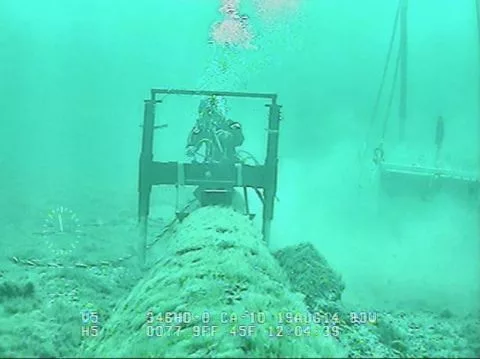“The state has an obligation and imperative to protect the Great Lakes from the threat of pollution, especially the devastating catastrophe a potential Line 5 rupture would wreak upon all of Michigan,” Nessel said.
Related:
An Enbridge spokesperson said the company is disappointed with the decision and “believes the case should remain in federal court.” Asked whether Enbridge will appeal the decision, spokesperson Ryan Duffy said the company is “evaluating its next steps.”
“While we remain confident that the Michigan state court will ultimately find that the Attorney General cannot shutdown Line 5, we are focused on building the Great Lakes Tunnel, which will make a safe pipeline safer and protect the waters of the Great Lakes, the environment, and people while assuring long term energy security and reliability, and supporting Michigan jobs and the economy,” Duffy said.
Monday’s decision marks a shift in the lawsuit’s momentum after a series of setbacks for Nessel, who campaigned on a promise to shut down the petroleum pipeline that crosses the open water of the Straits of Mackinac as it transports petroleum products from Wisconsin to Ontario.
A series of strikes from ships’ anchors have exacerbated longstanding fears that the 71-year-old pipeline could rupture in the Straits, causing a catastrophic spill.
Enbridge hopes to allay those fears with a plan to encase the pipeline in a concrete tunnel deep beneath the lakebed, while the company’s opponents, including Nessel, want the pipeline to cease operations entirely.
Legal scholars have previously said Nessel faces better odds of winning in state court than federal court, in part because the case could eventually make its way to a Michigan Supreme Court composed of primarily Democratic appointees. Beyond that, state courts tend to be more receptive to arguments rooted in state law, while federal courts are more likely to favor federal policies when they conflict with state law.
Nessel first filed her lawsuit in 2019 seeking to shut down Line 5 over safety concerns, contending Enbridge is operating the pipeline in the Straits in violation of Michigan’s public trust doctrine. In 2021, Enbridge removed the case to federal court, arguing that pipeline safety issues are a federal matter.
U.S. District Judge Janet Neff denied Nessel’s attempt to return the case to state court in 2022, prompting Nessel’s successful appeal to the Sixth Circuit.
Nessel argued that Enbridge had missed a key 30-day deadline to remove the case to federal court.
In an opinion written by Judge Richard Griffin, a three-judge panel including Griffin, Amul Thapar and John Nalbandian agreed.
“There are no equitable exceptions to the statute’s deadlines for removal,” Griffin wrote. “Thus, under these circumstances, this case belongs in Michigan state court.”




